Why the coronavirus pandemic might forever change how NRL club’s run their business
The coronavirus pandemic might forever change how NRL clubs do business with a $113 million river of gold set to dry up, possibly permanently.
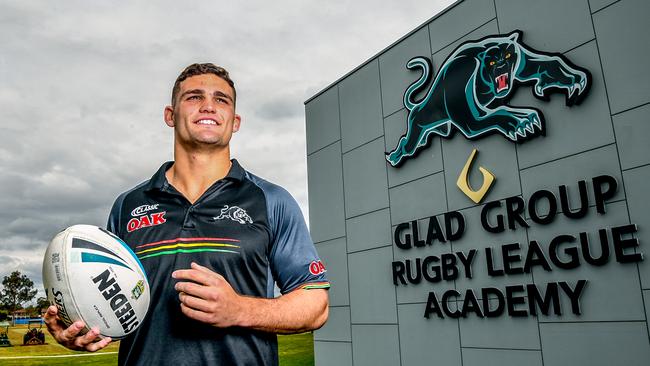
Panthers
Don't miss out on the headlines from Panthers. Followed categories will be added to My News.
- Ricky’s radical GF revolution 15 years in the making
- Not so fast: Players query ‘40 per cent’ salary cap cut
Leagues clubs have long been a gold mine for rugby league. Over the past four years, six of the game’s most prominent clubs alone have benefited to the tune of more than $113 million.
They have helped rugby league flourish by papering over cracks which have now been ruthlessly exposed by the coronavirus and its fallout.
Rugby league has been sidelined but so has their slush fund. Leagues clubs have closed down en masse and the tap threatens to be turned off, if not forever, then at least in the short term.
Hence NRL chief executive Todd Greenberg’s protestations in recent days that of all the rugby league clubs in danger due to COVID-19, he harboured greatest concerns for those who have relied on the largesse of poker machines to help make ends meet.
Relive classic NRL matches from the 60s to today on KAYO SPORTS. New to Kayo? Get your 14-day free trial & start streaming instantly >
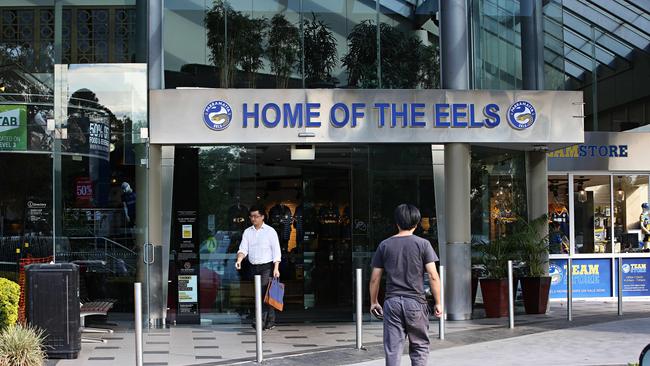
Parramatta have received more than $30m from their leagues club over the past four years, the enormous amount in part due to a salary cap that flattened the football club.
Penrith have had the tap turned on to the tune of more than $20m according to sources close to the football club.
Canterbury receive in excess of $4m a season from their leagues club — prior to this season being brought to a shuddering halt, there was even the promise of sponsorship on the front of the jersey. Make that another million.
Canberra’s flourishing junior system, like Penrith, owes much to the money which is siphoned from poker machines to rugby league clubs.
The doors closed, these are worrying times. They won’t die, but the rivers of gold may never flow like they once did.
The collateral damage will be football departments and salary caps. Maybe even junior leagues as cost structures are brought into line.
Do you know your Manly Seagulls from your Cronulla Hawks? Test yourself in our Ultimate Rugby League Quiz - Part 1
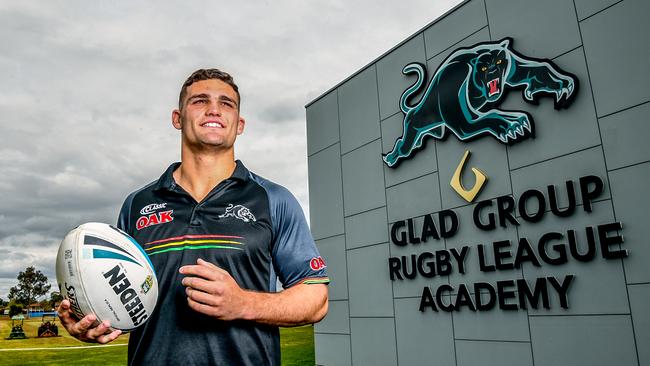
Some have preached for years about the dangers of relying on poker machine money to make ends meet. They have bred apathy in clubland about spending.
The story goes around about one well-known coach, who when asked how his demands would be financed, would point to the smoke stacks emanating from the leagues club in the distance.
The stacks are no longer smoking. The only dying embers are those of an era of unfettered spending when rugby league clubs relied — at times to an irresponsible extent — on the money that would flow from the leagues club to the paymasters in the NRL.
While Greenberg suggested clubs may be in jeopardy, those currently with the keys to clubland insist they will survive.
The leagues clubs are all asset-rich and while would no doubt recoil at the thought of off-loading those prized assets in the current environment, that option is there.
The Bulldogs, for instance, own as many as 10 pockets of real estate in and around their Belmore base. Penrith own land and activity parks.
Canberra own multiple gaming venues and restaurants. Football clubs may be forced to cut their cloth, but the show will go on. “We have an enormous amount of staff whose wellbeing we have to keep at the front of our mind,” Canterbury chief executive Andrew Hill said.
“We haven’t had time to turn our attention to what will happen in the future. I think it is fair to say we are well positioned.
“We have made some tough decisions to ride out the next six months. The challenge will be whether it goes longer than that.
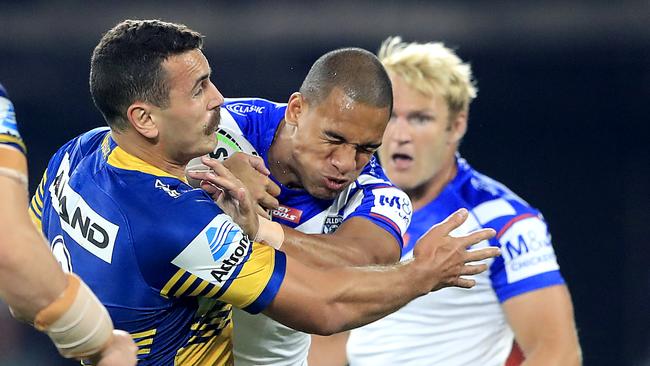
“We are all in the same position whether you have a licensed club or not. The initial focus is getting through the six month period. We will be here.
“I have no doubt about that.”
It may not necessarily be the NRL sides that suffer. They can at least fall back on cost cutting, most notably the slashing of wages across the playing group and football departments.
Leagues clubs spend millions on the game at grassroots level and there is every chance that aspect of the game will feel the pain more than the top level.
Canberra chief executive Don Furner, whose club is gifted about $3 million each year from their leagues club groups, was quick to point out the money they receive wasn’t used to run the NRL team.
“That sustains all our junior development programs within the Raiders, but it also runs and funds referees, ground hire, the competition structure under (the NRL),” Furner said.
“There is a mini-NSW Rugby League or Queensland Rugby League under us. It is not just young kids in Canberra, but the surrounding region.
“The most important thing for us and everybody is to get through the crisis. When that is going to be, how it is going to be and what it will cost, nobody knows.“
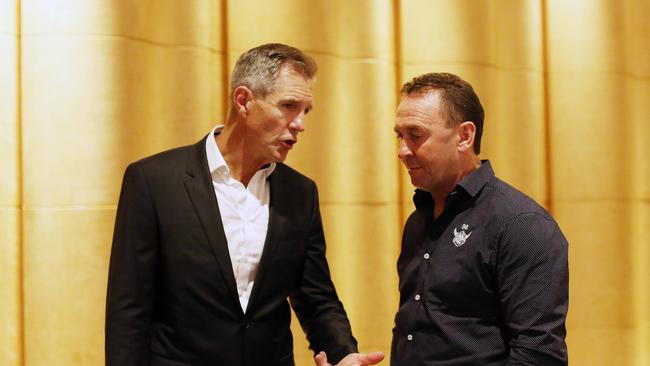
Penrith chief executive Brian Fletcher added: “The biggest expense for us stares right out in front of you — development. We are a development club. If we pull out of that it is going to save us $3 million a year straight away. You can fix the budget but it is going to hurt you down below. Everybody will take a hair cut right through the business. We can be here easily but you have to be smart with how you move forward.”
Furner has been banging on for years about the lack of support for a club like his that does so much to propagate the game of rugby league in the region. He grew up in a rugby league family and has a deep love for the game. He recoils at some of the spending that has gone on elsewhere, most notably on the poaching of players.
At times, frustration at the lack of respect has prompted the Raiders to talk about walking away from development.
It may be that COVID-19 is the straw that breaks the camel’s back. In all likelihood, the Raiders will maintain their support for rugby league because it is what they do. Like everywhere else, there will be pain while leagues clubs get back up and running. When they do, the landscape may have changed dramatically.
Originally published as Why the coronavirus pandemic might forever change how NRL club’s run their business

